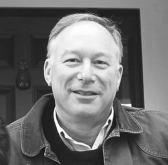It’s hard to imagine in the wake of the most recent mass school shootings, but I recall fondly when guns were a regular part of my adolescence in Connecticut.
My large public high school had a rifle range in the basement. We on the rifle team were introverts and unathletic kids who still wanted a team sport experience. Every afternoon, our coach would unlock the flimsy cabinet that held ten .22 caliber Winchester target rifles and we would practice for matches against other state high schools.
Our safety training was rudimentary but effective; mainly “never leave a bullet in it and don’t point it at anyone.” Our worst incident was the theft of a prized shooting jacket from a rival team; an appeal to good sportsmanship eventually got it back. One day, a National Rifle Association (NRA) membership card in my name arrived in the mail.
Gun violence — murder — has escalated dramatically since the early 1970s when we fired away in that school basement. In the wake of the transformation of the NRA from a sportsman’s association to a hard right activist organization, guns are much more prevalent in American political life. Even as mass shootings become commonplace and calls for gun safety protections grow, the NRA continues to use the Second Amendment as an excuse to successfully nurture the powerful, countervailing gun rights movement.

After each school shooting, gun safety and victims’ advocates call for “common sense gun reform” while gun rights organizations accuse them of politicizing the murders and ignoring the constitutional “right of the people to keep and bear Arms…” There is little real movement on the issue.
It’s time to change this frozen political dynamic. We need to reframe the debate to address the root cause of our national inability to effectively curb gun violence. It is time to talk about repealing the Second Amendment.
Too many gun safety advocates take precisely the wrong approach by tiptoeing around the Second Amendment, meekly reassuring that they only seek very limited reforms. This cautious approach defines the margins of public debate, and therefore the range of possibilities, far too narrowly. Rather, the very existence of a loud argument about the larger issue of repeal will make those incremental proposals seem more moderate, and therefore ultimately more achievable.
We need to counterbalance gun extremists with forceful, strong positions at the other end of the political spectrum. A campaign to repeal the Second Amendment is our best option.
Using what initially seem like radical positions to make other proposals appear more moderate is a well-established communications tactic to reframe public policy debates. This practice of attempting to expand or move the range of what are considered mainstream policy positions has come to be known as “shifting the Overton window.”
One example: The notion of full government health care for every American has long been derided on the right as socialism, but the existence of the Medicare for All movement helped make the Affordable Care Act seem moderate, and therefore more possible, by comparison.
One tenet of the Overton window concept is that elected officials generally seek to stay within that range of conventional positions. Currently, the idea of a Second Amendment that negates most gun laws is so ingrained, political leaders committed to reducing gun violence are forced to uniformly state that they’re not talking about intruding on this basic right, that they are not seeking to “take away your guns.” They fear being seen as being too radical and give away too much ground, leaving the center of the debate too far to the right.
This leaves it to the gun safety movement, to teachers and students and every one of us concerned about the 35,000 Americans killed by gun violence so far this year, to take up a call to repeal the Second Amendment. It is up to gun safety advocates to be bolder and more aggressive, to provide the air cover for like-minded people in the legislative trenches to move more incremental but currently controversial measures forward.
There is evidence that a bold repeal campaign could be useful and effective. A recent academic study found that use of “Radical tactics by one flank led the more moderate faction to appear less radical…This perception led participants to identify more with and, in turn, express greater support for the more moderate faction.”
To be clear, a ‘Repeal the Second Amendment’ campaign would not be to argue that nobody should have guns, but that not everyone should be able to have assault weapons on demand. It would not mean competitive shooters and hunters and people in need of personal protection should not have guns, but it could mean that the principal obstacle to any reasonable laws would be removed.
We might not get repeal for decades, if ever, but the effort itself would broaden the range of possibility, and there would be victories along the way. Regardless of its success or failure, such a campaign could help add new energy to efforts to reduce gun violence, empower more moderate elements of the movement, and, over time, make room for compromise on much better terms. Fewer police will be outgunned, and some people considering gun violence against themselves or others will be stymied or delayed until they get the help they need. The debate itself is the first step to saving countless lives.
So let’s get started. Say it out loud: “Repeal the Second Amendment.” Say it again. Say it everywhere.
Steven R. Singer is a communications strategist and former congressional press secretary in Connecticut, and former director of communications and public affairs and adjunct lecturer at the Harvard Kennedy School. He captained the Hamden High School rifle team in the 1970s.




